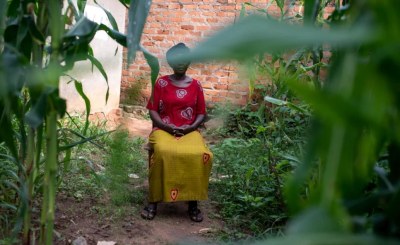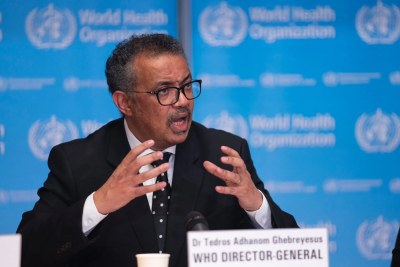-
Congo-Kinshasa: WHO Vows Cultural Overhaul After Ebola Sexual Abuse Scandal
The New Humanitarian, 22 October 2021
'I am committed to ensuring that the suffering of the survivors and their families is the catalyst for a profound transformation of WHO's culture.' Read more »
-
Congo-Kinshasa: WHO Announces Plan for 'Profound Transformation' Following Sexual Abuse Allegations
UN News, 21 October 2021
The suffering of survivors of sexual abuse allegedly perpetrated by World Health Organization staff during the tenth Ebola outbreak in the Democratic Republic of the Congo (DRC) is… Read more »
-
Congo-Kinshasa: WHO to Deploy Experts to Prevent Sexual Abuse After DRC Scandal
DW, 16 October 2021
The World Health Organization has been under pressure after nearly two dozen of its employees were accused of sexual abuse in the Democratic Republic of Congo. Read more »
WHO Talks Transformation After Sexual Abuse in DR Congo
The suffering of survivors of sexual abuse allegedly perpetrated by World Health Organization staff during the tenth Ebola outbreak in the Democratic Republic of the Congo (DRC) is going to be "the catalyst for a profound transformation" of WHO's culture, WHO Director-GeneralTedros Adhanom Ghebreyesus said while announcing a Management Response Plan to address the findings of an independent commission.
The plan outlines several short-term actions, focusing on the most urgent recommendations of the independent commission. The agency will start by supporting the survivors and their families, complete ongoing investigations, launch a series of internal reviews and audits, reform its structures and culture.
Over the next 15 months, the agency will initiate an overhaul of its policies, procedures, and practices to increase safeguards against sexual exploitation and abuse (SEA) in its programmes and operations.
In the field, this means the agency will provide livelihood support for victims and survivors, including more medical and psycho-social support, help them we job opportunities, and resources to potentially start a small business.
Children born as a result of these cases will also be supported, through educational grants and the covering of medical fees.
InFocus
-
The World Health Organization's (WHO) Director-General Tedros Adhanom Ghebreyesus has described sexual abuse and exploitation allegedly carried out by members of the UN health ... Read more »

In this illustration, a woman’s profile can be seen at a maternity ward in a hospital in the eastern Democratic Republic of Congo. One woman in Butembo – an aid hub during the 2018 to 2020 Ebola crisis – told the Thomson Reuters Foundation and The New Humanitarian that she had a baby after a man gave her a job with the World Health Organization in exchange for sex.





